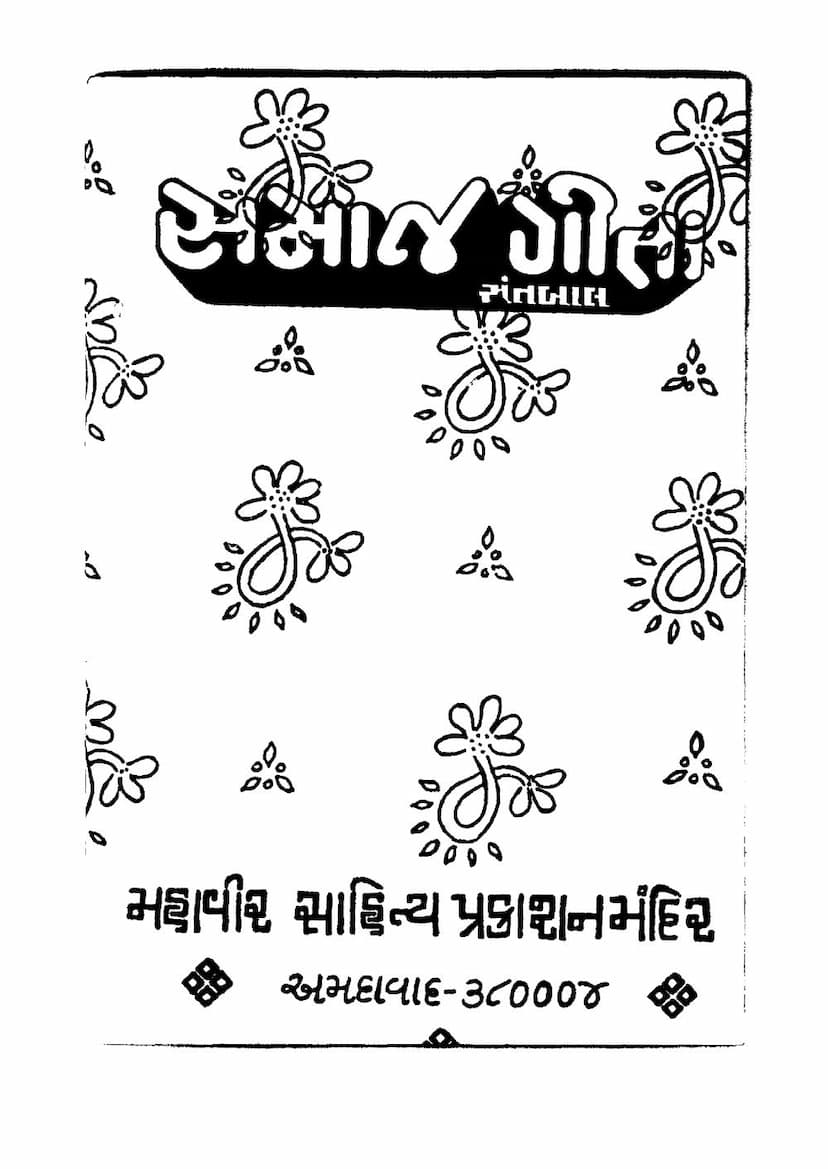Samaj Gita
Added to library: September 2, 2025

Summary
This document is a comprehensive Jain text titled "Samaj Gita" (Society Gita) authored by Santbal. Published by Mahavir Sahitya Prakashan Mandir in Ahmedabad, it is a collection of verses compiled by Devji Ravji Shah. The book's first edition was released in February 1986.
The text begins with introductory remarks from Ambhubhai Shah, highlighting Devji Ravji Shah's ability to recall and quote verses from various scriptures like the Mahabharata, Ramayana, Bhagwatam, and Gita, relevant to conversations and arguments. Shah emphasizes Devji's unique style and the dedication required for such a feat. He explains that while many of these verses are available elsewhere, their compilation in this book allows readers to grasp their interconnectedness and the illuminated insights they offer when read together, making them more impactful for understanding the views expressed by the Muni (Saint Bal).
The "Nivedan" (Statement) by Devji Ravji Shah provides a personal account of his spiritual journey and his introduction to Saint Bal. He identifies himself as a follower of the traditional Jain Shvetambara Sthanakvasi sect. His early spiritual education was influenced by his maternal uncle, Sadhu Hirachandji Swami, and other Sadhvis. He also mentions his association with Jakhubhai Mandan Shah, a follower of reformist ideas and a knowledgeable person in the broader Jain Dharma.
Devji Ravji Shah recounts his first encounter with Santbal Maharaj in 1953 after his Chaturmas in Lathi. He was invited by Jakhubhai, who spoke highly of Santbal's scholarship and his progressive views, including his separation of politics and religion and his willingness to challenge societal norms for the sake of Jain dharma. Impressed by Jakhubhai's trust, Devji Ravji Shah began to associate with Santbal.
He describes being deeply drawn to Santbal's lifestyle and teachings during an 18-day journey through Kutch in 1955. He was particularly struck by Santbal's writing on ideal domestic life, drawing parallels with characters from the Mahabharata and discussing themes like marital consent and the importance of societal approval for relationships. He recalls how his curiosity led him to engage in continuous discussions with Santbal, drawing inspiration from the Bhagavad Gita's emphasis on seeking knowledge through questions and service.
Devji Ravji Shah mentions the profound impact of Santbal's teachings, which led him to start organizations like the Bhachau Taluka Farmers' Association and Prajachalik Sangh, gaining valuable experiences. He advocates for the need for renunciates (sadhus) to engage in practical applications of truth and non-violence, believing that this will earn them respect from the people. He also stresses the importance of collaboration between spiritual organizations, service organizations, farmer groups, and political entities like the Congress party, guided by a shared ethical framework.
The book's index reveals a vast range of topics covered, from nature and interconnectedness to social dharma, different societal roles (Brahmin, Kshatriya, Vaishya, Shudra), Indian culture and its eight limbs, various aspects of dharma, conduct in different life stages (ashramas), the essence of devotion, the qualities of wise individuals, spiritual practices like tapa and renunciation, the importance of faith and satsang, and a detailed exploration of virtues and vices. The topics are presented in a structured manner, covering a wide spectrum of philosophical, ethical, and social concepts relevant to Jainism and broader human experience.